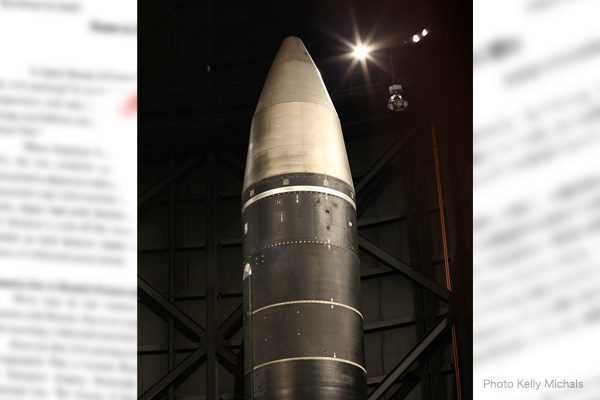Japan and the United States in late June held a regular working-level Extended Deterrence Dialogue to enhance the credibility of the U.S. nuclear umbrella for Japan. The two governments published a summary of the discussion in a more detailed manner than before. The improvement in the public relations may be better than nothing. But such improvement alone cannot resolve Japanese people’s suspicion about the nuclear umbrella or the extended nuclear deterrence.
Healey theorem
There is what nuclear deterrence experts call a “Healy theorem.” The theorem is the conclusion drawn by former British Defense Secretary Dennis Healy in the 1960s during the Cold War that “it takes only 5% credibility of American retaliation to deter the Russians, but 95% to reassure the Europeans.” For today’s Japan, the theorem means that while a one-20th chance for the U.S. to use nuclear weapons for Japan can deter China, North Korea or Russia from launching nuclear attacks on Japan, a 19-20th chance is required to reassure Japan.
The Japan-U.S. extended deterrence dialogue has been held since 2010, biannually in recent years, attended by deputy directors-general from Japan’s Foreign and Defense Ministries and deputy assistant secretaries from the U.S. State and Defense Departments. As informed sources say substantial discussions are held at the dialogue, the Japanese government may be 95% confident of the U.S. nuclear umbrella. But the confidence is not shared by Japanese people. Many people doubt if the U.S. would defend Japan with nuclear weapons even at risk of triggering retaliatory nuclear attacks on New York or Washington.
Three non-nuclear principles impeding deterrence
People’s doubts are also directed at the Japanese government’s seriousness about the extended deterrence. As long as the government adheres to the three non-nuclear principles of not possessing, not producing and not permitting the introduction of nuclear weapons, there will be limits to the extended deterrence.
The North Atlantic Treaty Organization (NATO) has a nuclear sharing arrangement where U.S. nuclear warheads are deployed on the territory of some European allies and the U.S. and the allies jointly decide on use of them and even jointly conduct operation itself. This arrangement demonstrates strong ties of the alliance and contributes to strengthening nuclear deterrence. When former Japanese Prime Minister Shinzo Abe before his death proposed to begin discussions about Japan’s nuclear sharing with the U.S., incumbent Prime Minister Fumio Kishida instantly rejected the idea, saying, “It [nuclear sharing] cannot be admitted from the position of retaining the three non-nuclear principles.”
Among NATO countries, Britain and France possess their own nuclear forces. In South Korea, which is directly threatened by North Korean nuclear missiles, active discussion of independent nuclear armament occurred early this year. South Korean President Yoon Suk Yeol visited Washington in April and jointly announced the Washington Declaration with U.S. president Joe Biden on extended deterrence. Seoul’s demonstration of the preparedness to go nuclear might have drawn strengthened extended deterrence.
Can Prime Minister Kishida persuade Japanese people that the three non-nuclear principles do not impede the extended deterrence for Japan?
Yasushi Tomiyama is a senior research fellow and Planning Committee member at the Japan Institute for National Fundamentals and a former foreign news editor and bureau chief in Washington, D.C., London, and Bangkok for the Jiji Press.


